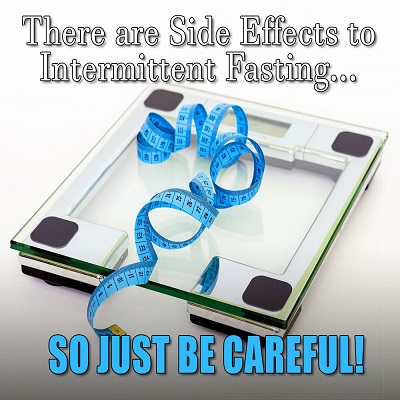 Intermittent fasting is becoming a more common and accepted method of weight management and body fat reduction. It involves an eating cycle where you don’t eat anything for a set number of hours or days and then you resume your normal meals.
Intermittent fasting is becoming a more common and accepted method of weight management and body fat reduction. It involves an eating cycle where you don’t eat anything for a set number of hours or days and then you resume your normal meals.
Many have tried and testified to intermittent fasting’s ability to help you lose weight and make you healthier in the process. This diet plan has also been linked to other benefits such as keeping various diseases at bay, including cancer, heart diseases, diabetes, and Alzheimer’s disease.
However, as most studies have been conducted on animals, there is still a need to gather more scientific evidence to prove the effectiveness of intermittent fasting to keep you healthy. As such, it is recommended that you take caution before you embark on this diet regime.
If you have pre-existing conditions or are at a high risk of developing any disease or condition, you must consult your doctor first, to get a health assessment as to whether intermittent fasting is suitable for you.
Here are some side effects and risks that you may experience when you undertake intermittent fasting:
You Will Feel Hungry and Weak
It will be normal to feel hungry when you first start with intermittent fasting. You may also feel weak and tired because your body will be running on a different energy supply cycle than it is used to. But these are temporary and will abate when your body has properly adjusted to your new eating cycle.
To handle your hunger during your fasting periods, avoid looking at and smelling food because that will amplify signals to your brain that you are hungry. You can drink water, tea, or coffee without sugar to fill your stomach if necessary.
You can also keep yourself busy by doing some mentally engaging activities or by reading a book. That way, you keep your mind from thinking about food.
Intermittent fasting can affect your physical strength at particular times, so you should schedule your fasting periods around your regular workout routine to manage your energy needs. Exercising during your fasting days or periods may lead to excessively low blood sugar levels, which can cause dizziness and confusion.
Intermittent Fasting Might Trigger Binge Eating
As your body may feel deprived during your fasting periods, you may overeat when your eating windows arrive. This can trigger an insulin surplus, so instead of losing, you could gain weight. Fasting can increase your stress hormone cortisol, which can trigger cravings. Meditating and listening to music can help lower cortisol levels.
So it is important to remember not to splurge on your non-fasting days, and to mindfully eat nutritious and satiating food during your eating windows.
It Can Cause Heartburn and Headaches
At the start of your intermittent fasting journey, you may experience heartburn because your body releases unneeded acid to your stomach based on your previous eating habits. It often goes away within six weeks, but if it persists, you should see your doctor. Headaches are also common when fasting, but drinking water can help relieve them.
It Can Affect Your Hormones
Extreme intermittent fasting could affect the functionality of your hormones such as reproductive hormones, which can lead to missed periods among women, metabolic disturbances or early signs of menopause. Intermittent fasting can also affect your levels of dopamine and serotonin, the neurotransmitters that regulate your mood and appetite.
An increase in stress hormones could disrupt your sleep patterns, so you might feel irritable, tired, and groggy while you are an intermittent fasting newbie.
Meditating, stress-lowering activities, and eating a nutritionally balanced diet during your regular meal period will help you manage this. Don’t forget to get enough sleep as well, so you will be in a better mood during your waking hours.
Effects on Existing Diabetics
While a lower risk of diabetes is one of the benefits associated with intermittent fasting, there is also some risk that this diet plan can adversely affect those who have advanced diabetes. Those who already have diabetes are currently discouraged to do intermittent fasting because they already have insulin resistance. A doctor’s advice is essential to take into account your specific circumstances.
As with all aspects of health, intermittent fasting also comes with disadvantages depending on your condition. It is important to determine yourself, with a help of a health professional, if this eating cycle would be suitable for you. You want to enjoy its benefits and as much as possible avoid any unwanted side effects.






